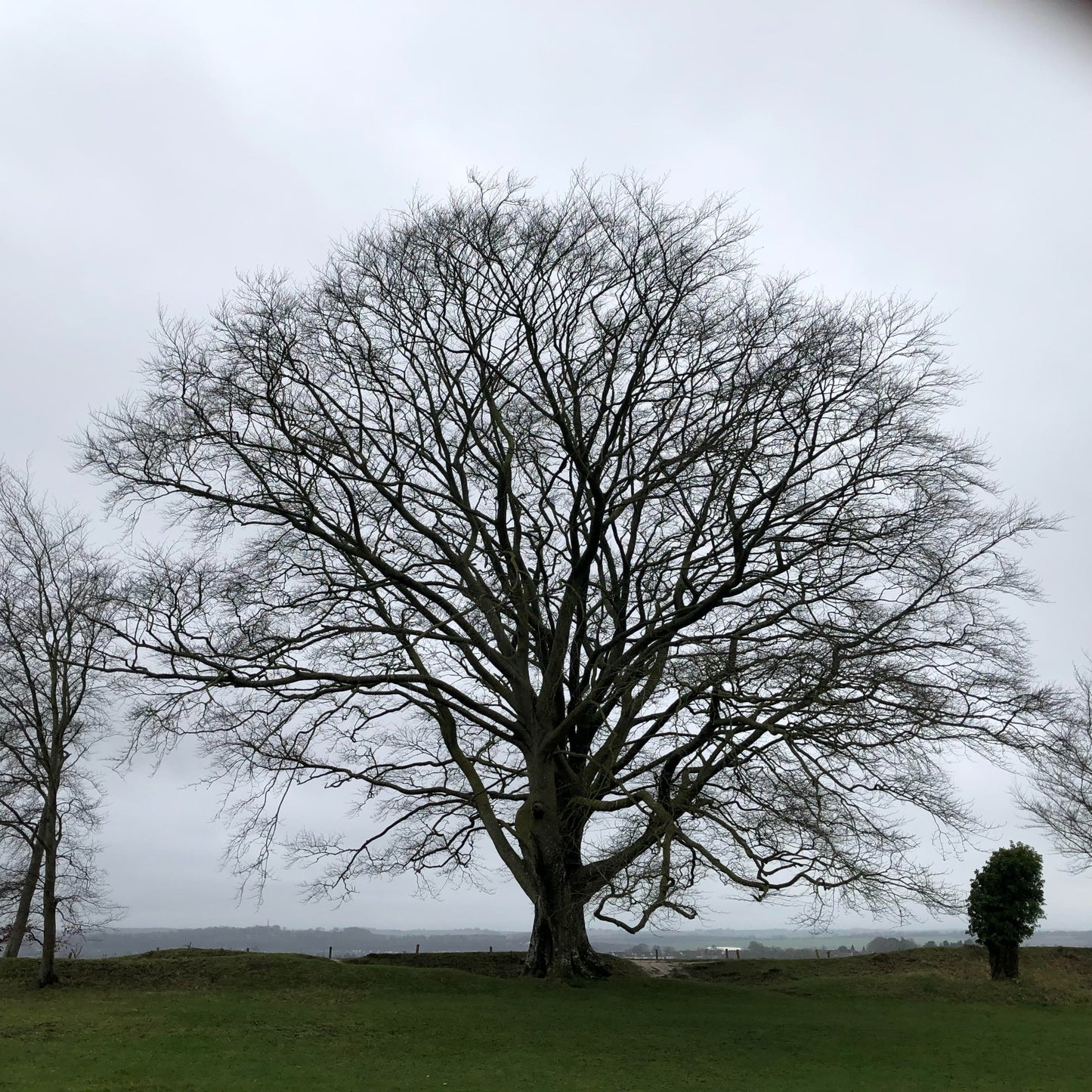Habitat Aid Ltd
Beech (Fagus sylvatica)
Beech (Fagus sylvatica)
Prices include VAT (when applicable) and delivery to mainland UK.
Couldn't load pickup availability
Beech (Fagus sylvatica)
The majestic Common Beech, Fagus sylvatica, has been here since before we were an island - beech pollen in Hampshire has been dated back to 6000 BC. It's an antisocial tree, growing best among its own - stands of hilltop beech or "hangars" are one of the most beautiful landscape features of Southern chalk downlands; Gilbert White called them "the most lovely of all forest trees". George Peterken offers a rather more ambivalent view: "the most elegant and the most tedious of trees".
Beech is adaptable, growing in most well drained soils and tolerant of shade, but unlike the visually similar Hornbeam doesn't like the wet. Its dense shade means that over time Beech can dominate mixed woodland. It's shallow root system means it's susceptible to drought, however, which might pose a real threat to it in future years.
On the positive side though, beech saplings are pretty unpalatable to deer. Every decade or so beech fruits abundantly and there's a mass of mast produced.
Beech makes an excellent hedge (see below) and dominates the hedge banks on Exmoor, where the main photo was taken in autumn. This kind of spreading habit is very different to the trees you'll find in planted or heavily managed woodland.
Beech's typical life is around 200 years, although coppiced trees will last another century.
Uses
Beech wood has been coppiced and pollarded since the Iron Ages (at least!) for fuel wood; seasoned wood will make for a lovely bright fire. In the 18th century tall straight limbed beech trees were grown for Windsor chair legs.
Beech mast - produced irregularly - is a tremendous boon for all sorts of wildlife, and the nuts used to be pressed into oil or toasted and eaten. Beech leaves were both used for mattresses and mixed with gin to make an alcoholic drink, beech-leaf noyau, and apparently you can add them when young to a salad (who knew?).
According to folklore it is a benevolent tree; the lost traveller seeking shelter beneath its boughs will be safe. We include Beech in our mixed native woodland collections.
Fagus sylvatica is one of the most helpful hedge plants there is. If you clip your Beech hedge it will hold its leaves in winter (see photo), which is perfect for a privacy hedge or for a hedge to muffle traffic noise. This is an odd feature it shares with hornbeam called marcescence; in the spring the old leaves are eventually dislodged by new ones. It also means Beech hedges provide helpful shelter for birds, even in winter months. It is best grown as a hedge in a staggered row, with 4 or 5 plants per metre.
Plants For Sale
Like all our native trees and hedging, our beech trees have UK origin and provenance - that's to say they're grown here using seed from trees here. We sell good sized 2 year old 60-90cm plants in multiples of 5, and larger plants as available singly.
Smaller Sizes Supplier: British Hardwood Tree Nursery, RV Roger
See our planting and size guide for details and tips on planting.
These Beech trees are all bare root, and are consequently available for delivery from November until March (please ask if you are interested in pot grown plants). During the lifting season there may be up to a month's delay between placing the order and dispatching, due to weather conditions or pressure of orders, which are dealt with in date sequence. Orders placed for Beech between March and October are confirmed for dispatch from November.
Have a look at our videos on what to do when your plants arrive and how to plant a bare root tree. Please ask about larger trees; we can often supply them but will need to quote on an individual basis as carriage varies so much.Information
Share












